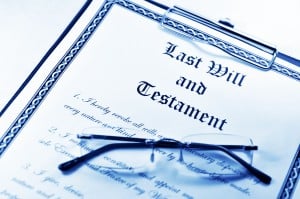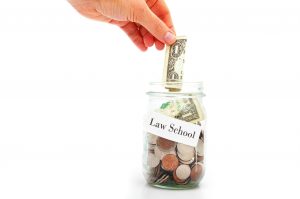(Photo by MANDEL NGAN/AFP/Getty Images)
How do you define “shortlisted?” One definition is “qualified for a position from a list that creates the appearance of diversity but preserves the status quo.” That’s the definition that the authors, law professors Renee Knake Jefferson and Hannah Brenner Johnson, have crafted in their book Shortlisted, Women in the Shadows of the Supreme Court. In this book, the authors highlight women who have been considered for the United States Supreme Court as far back as almost a hundred years ago but never made it to the Mount Olympus of the legal profession. It took President Ronald Reagan to nominate Arizona judge Sandra Day O’Connor to the Court in 1981, a promise that Reagan had made during the 1980 presidential election campaign to appoint a woman to the Court.
For most of the ATL readership that wasn’t even born when O’Connor was nominated, this book is a fascinating glimpse into the human and political considerations that were made in deciding whether a woman would be nominated. To no surprise, especially not to this “second wave” feminist, one who came of age in the 1970s (per Wikipedia, “second-wave feminism broadened the debate to include a wider range of issues: sexuality, family, the workplace, reproductive rights, de facto inequalities, and official legal inequalities”), the struggle to have a woman nominated was an essential part of the political “push me, pull you.”
While the overt bias against women as lawyers and as judges still exists today, it is more subtle than when several justices nixed the idea of a woman colleague, complaining that the presence of a woman colleague would disrupt the all-male collegiality of the Brethren (and if you have never read the book it’s a must. ) It wasn’t until Chief Justice Warren Burger suggested O’Connor to Reagan’s attorney general, William French Smith, that the nomination happened. Yes, the very same Chief Justice who had previously told President Richard Nixon that he would resign if a woman were nominated.
A number of very accomplished women were on the shortlist during various presidential administrations before Reagan. At least five were from California: 9th Circuit judges the late Cynthia Holcomb Hall and the late Pamela Rymer, two from the state appellate court: Joan Dempsey Klein and Mildred Lillie, and HUD Secretary Carla Hills. Others included Florence Allen of the 6th Circuit; Susie Sharp, the Chief Justice of the North Carolina Supreme Court; Amalya Kearse, a federal appellate judge on the Sixth Circuit, who was the black female seen as a potential Supreme Court nominee; Judge Edith Jones, appointed by Reagan to the Fifth Circuit; and Cornelia Kennedy, nominated by President Jimmy Carter in 1979 to the 6th Circuit, where she remained until her death in 2014. There were others as well.
The authors tell the backstories of each of these amazingly accomplished women, even if they didn’t make it on to the nation’s highest court. and yes, sexism (no surprise there) is a large part of their stories and how they fought to overcome the female stereotypes that existed then and still today.
A few examples, and they would be almost laughable, but not quite: no articles about men shortlisted for the Court described their physical attributes. A New York Times article in 1971, when Lillie was considered as a potential Supreme Court nominee, reported that “fortunately” she had no children and that she had maintained her “bathing beauty figure” into her 50s. Do tell.
What men considered for a seat have been described by their physical appearances? None. Recent appointees Sonia Sotomayor and Elena Kagan, both childless and unmarried, were criticized for their weight, as if that had anything to do with the jobs at hand. Antonin Scalia was not exactly svelte, but it was never an issue the media discussed. Was there any criticism of David Souter’s singlehood? Double standard anyone? In the 40-year period that the authors analyzed from 1970 to 2010, not one male nominee’s domestic skills, such as cooking, was the subject of any attention, but the fact that Ruth Bader Ginsburg, a self-admitted lousy cook, left cooking to her husband merited attention.
Florence Allen, the first woman shortlisted for a seat on the Court, was considered by several presidents. including Herbert Hoover, FDR, and Harry Truman. However, her sex did not keep her from being nominated to the 6th Circuit by FDR in the mid-1930s, where she served on that bench for years. Similarly, other women made it to the federal appellate courts, but no higher.
Disqualifications for various women on the shortlist in the 20th century included personal and professional relationships, views on feminism and racism, motherhood, and age. However, age never seemed to be a disqualifying factor for men. Men mature, while women become invisible after a certain age, and the irony is that it’s exactly when women come into their full power and influence that society thinks they’re done. Don’t get me started.)
Not all the Shortlisted women held views that were consistent with women’s rights, even human rights. Several of them held openly racist views; others felt that passage of the Equal Rights Amendment would be harmful to gains women had already made.
I was not familiar with the term “self-shortlisting” until I read this book. What is it? It’s declining a leadership role even if offered. There can be very good reasons for self-shortlisting, including concern about the “glass cliff,” that is, accepting a leadership position that is risky and where failure is foreseeable and even inevitable. Self-shortlisting is not necessarily shortsighted; it’s a careful evaluation of risk, and oftentimes women who take that risk go down with the ship.
The authors’ mission, at least partially, in writing the book is to have more women go from shortlisted to selected, and they offer a number of suggestions for overcoming the shortlist — collaboration, availability of early child care, and creating meaningful opportunities, just to name a few. While they are useful to law students and those just starting out, those of us who have been around for a while have heard them all before.
The most interesting parts of the books were the “herstories,” how these various women lawyers and judges survived and thrived (even if not nominated to the Supreme Court), withstanding the various slings and arrows, insults, and exclusions in what was then and still is a male-dominated profession.
 Jill Switzer has been an active member of the State Bar of California for over 40 years. She remembers practicing law in a kinder, gentler time. She’s had a diverse legal career, including stints as a deputy district attorney, a solo practice, and several senior in-house gigs. She now mediates full-time, which gives her the opportunity to see dinosaurs, millennials, and those in-between interact — it’s not always civil. You can reach her by email at oldladylawyer@gmail.com.
Jill Switzer has been an active member of the State Bar of California for over 40 years. She remembers practicing law in a kinder, gentler time. She’s had a diverse legal career, including stints as a deputy district attorney, a solo practice, and several senior in-house gigs. She now mediates full-time, which gives her the opportunity to see dinosaurs, millennials, and those in-between interact — it’s not always civil. You can reach her by email at oldladylawyer@gmail.com.








 Ellen Trachman is the Managing Attorney of
Ellen Trachman is the Managing Attorney of 








 Jill Switzer has been an active member of the State Bar of California for over 40 years. She remembers practicing law in a kinder, gentler time. She’s had a diverse legal career, including stints as a deputy district attorney, a solo practice, and several senior in-house gigs. She now mediates full-time, which gives her the opportunity to see dinosaurs, millennials, and those in-between interact — it’s not always civil. You can reach her by email at
Jill Switzer has been an active member of the State Bar of California for over 40 years. She remembers practicing law in a kinder, gentler time. She’s had a diverse legal career, including stints as a deputy district attorney, a solo practice, and several senior in-house gigs. She now mediates full-time, which gives her the opportunity to see dinosaurs, millennials, and those in-between interact — it’s not always civil. You can reach her by email at